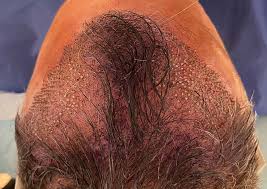Hair Transplant Cost: Making Sense of the Numbers

Hair loss can be a distressing experience, impacting self-esteem and confidence. For those seeking a solution, hair transplants offer a promising option. However, understanding the costs involved can be complex. In this article, we'll delve into the factors influencing hair transplant costs and help you make sense of the numbers without quoting specific prices.
Understanding Hair Transplant Costs
Hair Transplant Costs in Dubai can vary significantly based on several factors. These include the type of procedure, the clinic's location, the expertise of the surgeon, and the extent of hair loss. By examining these elements, you can gain a clearer picture of what to expect when budgeting for this procedure.
Procedure Type
There are primarily two types of hair transplant techniques: Follicular Unit Extraction (FUE) and Follicular Unit Transplantation (FUT). FUE involves extracting individual hair follicles and transplanting them to the thinning or balding areas. This technique is less invasive and generally results in quicker recovery. FUT, on the other hand, involves removing a strip of scalp tissue to harvest hair follicles. While it may involve a more extended recovery period, it can be more suitable for those needing a larger number of grafts.
The choice between FUE and FUT can significantly affect the overall cost of the procedure. FUE is often priced higher due to its advanced technology and the meticulous nature of the process. On the other hand, FUT might be more cost-effective for those requiring extensive coverage.
Clinic Location
The geographical location of the clinic plays a crucial role in determining the cost of hair transplant procedures. Clinics in major cities or affluent areas may charge more due to higher operational costs and increased demand. Conversely, clinics in less populated or less affluent areas might offer more competitive pricing.
The cost variation based on location is not just a matter of real estate prices. It also reflects the local economic conditions, including average income levels and the cost of living. Therefore, it's essential to consider not only the cost of the procedure but also the value of the clinic's reputation and the quality of service provided.
Surgeon Expertise
The expertise and experience of the surgeon performing the hair transplant can also impact the cost. Highly skilled and renowned surgeons with a track record of successful outcomes often command higher fees. This is due to their advanced techniques, precision, and the personalized care they provide.
Choosing a highly experienced surgeon can be advantageous, as it may lead to better results and fewer complications. However, it's crucial to weigh the potential benefits against the cost and ensure that the surgeon's qualifications and experience align with your needs and expectations.
Extent of Hair Loss
The extent of hair loss is a significant factor in determining the overall cost of the procedure. The more extensive the hair loss, the more grafts will be needed to achieve satisfactory results. This can increase both the duration of the procedure and the cost.
A thorough consultation with a hair transplant specialist can provide a clearer estimate based on the specific needs of your case. The specialist will assess your hair loss pattern, discuss your goals, and recommend a suitable approach, which will help in understanding the cost implications.
Additional Costs
Beyond the basic cost of the hair transplant procedure, there are additional factors to consider. These might include pre-operative tests, medications, follow-up consultations, and post-operative care. While these additional costs may seem minor compared to the main procedure, they can add up and should be factored into your overall budget.
Pre-operative tests ensure that you are fit for the procedure and help in planning the approach. Post-operative care, including medications and follow-up visits, is essential for ensuring proper healing and achieving the best possible results.
Financing and Payment Options
Many clinics offer financing and payment options to make hair transplants more accessible. These options might include installment plans, medical loans, or payment plans that allow you to spread the cost over time. Exploring these options can make the procedure more manageable and help you fit it into your budget.
Before committing to any financing plan, it's important to understand the terms and conditions, including interest rates and repayment schedules. This will ensure that you are fully informed about the financial implications and can make an informed decision.
Choosing the Right Clinic
When evaluating clinics, it's crucial to balance cost with quality. While it might be tempting to opt for the lowest-priced option, it's essential to consider the clinic's reputation, the quality of care provided, and the results of previous procedures. Researching and comparing different clinics will help you find a balance between affordability and quality.
Reading patient reviews, asking for before-and-after photos, and consulting with multiple clinics can provide valuable insights into the quality of care and the expected outcomes. This due diligence can help you make a well-informed decision and achieve the best possible results for your investment.
Conclusion
Understanding the factors that influence hair transplant costs is crucial for making an informed decision. By considering the type of procedure, clinic location, surgeon expertise, extent of hair loss, and additional costs, you can better navigate the financial aspects of this investment. Exploring financing options and choosing the right clinic will further ensure that you receive the best value for your money. With careful planning and research, you can achieve a successful hair transplant that enhances your confidence and overall appearance.